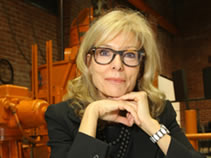Message from the President: April 26, 2011

Montreal, April 26, 2011
To ICAMT President Dr. Stephen Cannon-Brookes
Dear colleague,
I hereby duly acknowledge receipt of your letter.
Though I am grateful to have been privy to your letter as AVICOM President and incoming ICOM Canada President, regrettably, I cannot lend my support to the position it puts forth. My reasons follow.
Firstly, to make adversaries of the international and national committees would appear to me counterproductive. With regard to the stated major intellectual contributions of the international committees, I prefer to think that both the contributions of the international and national committees are invaluable to ICOM. Your position seems to establish a hierarchy between these two types of committees, and by doing so I feel that the commitment of our national committee members would be undermined. Volunteers in each country work at raising awareness about ICOM throughout their professional networks. I find it difficult to conceive how international committees could ensure the dissemination of the wide range of activities ongoing at the national level. National committees serve us by maintaining a certain degree of objectivity.
I acknowledge that the international committees currently seek to address two distinct matters; increasing financial means on one hand, and access to ICOM’s Executive Committee on the other. ICOM and its national and international committees have already begun addressing this issue of increasing financial means. In fact, discussions held in Shanghai about ICOM’s 2011-2013 Action Plan, which I was lucky to attend personally, broached this very issue. I believe ICOM should be permitted to follow through on its revised plan of action before adopting a new stance that, though respectfully, appears to establish a hierarchy between the two committee levels.
In terms of the proposed channel for representation, I believe this to be largely unnecessary. Unless I am mistaken, international committees have regular access to the ICOM offices. I myself spent several hours with the ICOM Director in January in discussion about AVICOM’s newest initiatives. Adding a new liaison structure seems ill-advised, if only in light of rendering an already immense ICOM structure all the more bureaucratic and administrative. Your letter raises the issue of international committees being penalized. I will conclude my remarks by reminding that, if memory serves, this penalty is in fact due to a lack of funds. A lack of funds can very well be a reality for an organisation such as ICOM since its financial stability rests on the reliability of the current economic climate. The hardships encountered by the Canada Council for the Arts during my three-year mandate as board member when foreign exchange rates fluctuated illustrates this very reality.
This being said, I applaud the intent of your position in that it suggests the pursuit of improved communication between the committees and members of the board, and in this regard, I support your position.
However, in light of advisory board communications already being quite formal, I do not believe that increased formalisation of our communication channels is advisable, particularly if said initiative would make adversaries of the international and national committees.
I hope the feedback herein offers you pertinent new perspective on the matters raised in your letter.
Respectfully,
Manon Blanchette Ph.D.
AVICOM President
ICOM Canada President